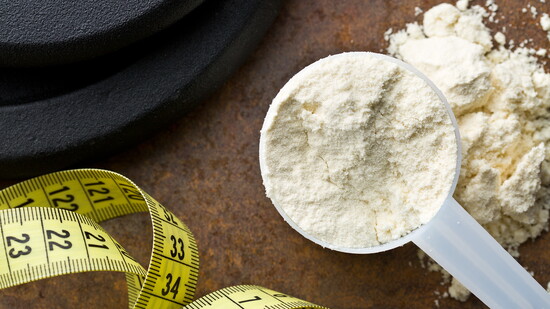Protein. It’s not just for bodybuilders. Whether your goal is weight loss, muscle gain, or simply avoiding that mid-morning crash, protein plays a critical role in helping you get there. Yet many people underestimate both how powerful it is and how much they actually need. Spoiler: it’s more than you think.
Protein: The Appetite Whisperer
One of protein’s superpowers is appetite control. Higher protein intake boosts satiety hormones like GLP-1, peptide YY, and cholecystokinin (don’t worry about pronouncing them—just know they’re on your side). These hormones signal your brain that you’re full, helping you eat less without white-knuckling through hunger. In simple terms, protein keeps you satisfied longer and can naturally reduce how many calories you eat in a day.
Muscle Gains (and Why It Matters Even If You’re Not “Bulking”)
Muscle isn’t only about looks. Lean muscle burns more energy, even at rest, which means a higher resting metabolic rate. The more muscle you carry, the more calories your body uses even when you’re lounging on the couch. Protein, paired with strength training, delivers the amino acids your muscles need to grow and recover. You won’t “accidentally bulk up,” but you will build a stronger, more efficient body that resists aging and feels capable.
Where to Get Your Protein Fix
Protein doesn’t just come from chicken breast or shakes. Mix up your sources for variety and nutrition:
Animal Proteins
-
Turkey
-
Lean beef or bison
-
Chicken
-
Salmon, sardines, tuna, trout (bonus: omega-3s)
-
Egg whites (Tip: a 2:1 egg white-to-whole egg ratio gives ~15g protein to 5g fat.)
Dairy Sources
-
Milk
-
Yogurt
-
Cheese (yes, in moderation)
Plant-Based Proteins
-
Beans
-
Chickpeas
-
Lentils
Rotating your protein sources keeps meals interesting and ensures you’re getting a broad mix of nutrients.
How Much Protein Do You Actually Need?
This depends on your goals, body composition, and lifestyle. There’s no one-size-fits-all, but here are useful starting points:
-
Weight Loss: 30–35% of daily calories from protein, or ~0.7–1 g per kilogram of lean body mass.
-
Muscle Gain: Closer to 40% of daily calories, or ~1.5 g per kilogram of your target lean mass weight.
Keep in mind these numbers and formulas are merely guidelines, not commandments. Your
lifestyle, mindset, discipline level, and even your grocery budget all play a role in what’s realistic
and sustainable for you. The key is to be open to experimentation. You might need to try a few different approaches to find what feels best. Talk to your nutrition coach, be willing to test out new foods, and don’t be afraid to adjust your protein intake based on how your body responds.
The Bottom Line
Protein isn’t just for athletes or “fitness people.” It’s a fundamental nutrient that supports appetite control, muscle maintenance, and overall metabolic health. Whether you’re trying to lose weight, build strength, or simply feel more energized throughout the day, protein needs to be a bigger priority on your plate. And if you’re still not sure where to start, that’s what we’re here for. Let’s create a plan that works for you. No fad diets, no extreme restrictions, just smart strategies that fit your lifestyle.
Quick Protein Boosts
Start with Greek yogurt or a protein smoothie, snack on eggs or roasted chickpeas, and pair beans with lean meats for extra staying power.
